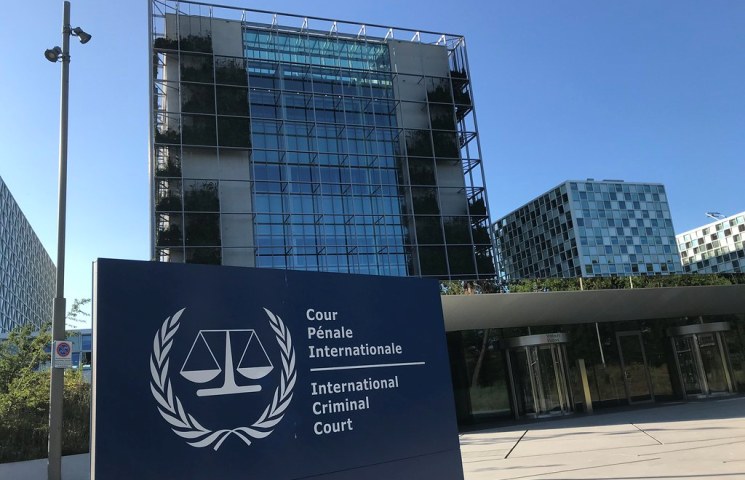UN Expert Warns Mali Against ICC Withdrawal, Citing Justice and Victims’ Rights
“Withdrawing from the ICC would be a betrayal of victims of gross human rights violations and abuses as well as serious violations of international humanitarian law committed in Mali,” González declared.

A United Nations human rights expert has urged Mali to reverse its decision to withdraw from the Rome Statute, the founding treaty of the International Criminal Court (ICC), warning that such a move would have serious consequences for justice, accountability, and victims of atrocity crimes.
Withdrawal a “Betrayal of Victims”
Eduardo González, the UN Independent Expert on the situation of human rights in Mali, said the country’s exit from the ICC would undermine the rights of victims of war crimes, crimes against humanity, and other grave violations committed in Mali since 2012.
“Withdrawing from the ICC would be a betrayal of victims of gross human rights violations and abuses as well as serious violations of international humanitarian law committed in Mali,” González declared.
He added that the move could embolden perpetrators of atrocities, who may interpret it as a signal of impunity.
Mali’s Announcement and Criticism of the ICC
On 22 September 2025, Mali’s Transitional President, General Assimi Goita, signed a joint statement with leaders of the Confederation of Sahel States announcing Mali’s “immediate” withdrawal from the Rome Statute.
The statement criticized the ICC as “an example of selective justice” and claimed it had failed to prosecute grave crimes such as genocide and crimes of aggression.
However, González stressed that such a declaration has no immediate legal effect, as withdrawal under Article 127 of the Rome Statute only takes effect one year after official notification is received by the UN Secretary-General. He emphasized that the ICC would still retain jurisdiction over crimes committed while Mali was a State Party.
ICC’s Role in Mali Since 2012
Mali became a party to the Rome Statute in 2000 and formally referred its situation to the ICC in July 2012, following the outbreak of armed conflict and atrocities committed by extremist groups in the country’s north.
The ICC has since secured two convictions related to Mali:
-
Ahmad Al Faqi Al Mahdi (2016): Convicted of war crimes for destroying religious and historic monuments in Timbuktu; sentenced to nine years. Reparations were awarded to victims and the city.
-
Al Hassan Ag Abdoul Aziz (2024): Convicted of war crimes and crimes against humanity in Timbuktu between 2012 and 2013; sentenced to ten years. Victims were set to receive reparations, but these could be jeopardized by Mali’s withdrawal.
Additionally, in June 2024, the ICC publicly unsealed an arrest warrant against Iyad Ag Ghaly, leader of the extremist group Ansar Dine, for alleged crimes committed in northern Mali between 2012 and 2013.
UN Expert: ICC Needed Now More Than Ever
González argued that Mali’s authorities have repeatedly cited security conditions as reasons for failing to carry out domestic investigations or prosecutions of atrocity crimes. He warned that this reluctance highlighted precisely why ICC involvement remained essential.
“Mali’s intended withdrawal from the ICC would signal the authorities’ unwillingness to fight impunity and ensure justice. It would be a betrayal of Malian victims,” he said.
He recommended that the ICC continue its investigations and prosecutions to address serious crimes committed in the country since 2012, stressing that accountability remains critical for peace and reconciliation.
Victims at Risk of Losing Justice
A key concern highlighted by González is that Mali’s withdrawal could stall or block reparations for victims of crimes already adjudicated. For instance, reparations awarded in the Al Hassan case might never be delivered if the country refuses to cooperate.
The UN expert cautioned that without justice, cycles of violence and extremism in Mali are likely to persist, undermining both human rights protections and prospects for long-term stability.
Broader Implications for the Sahel
Mali’s withdrawal aligns with the stance of the Confederation of Sahel States, an alliance formed with Burkina Faso and Niger following their military takeovers. Analysts warn that this coordinated rejection of international justice mechanisms could erode accountability across a region already plagued by insurgency, terrorism, and political instability.
Looking Ahead
While Mali insists that the ICC has failed, González underscored that the Court remains one of the only mechanisms available to ensure impartial investigations into atrocities. He called on the Malian government to reconsider its stance, prioritize the rights of victims, and recommit to international justice.
“The victims of Mali deserve justice, not abandonment,” he concluded.
ALSO READ
AFSPA Extension in Assam: Balancing Security and Human Rights
Geneva Exhibition Exposes Bangladesh's Escalating Human Rights Crisis
Slovakia's Controversial Constitutional Amendment Sparks Human Rights Debate
Haryana Human Rights Commission Probes School Punishment Scandal
Slovenia Stands Firm: Travel Ban on Israel's Netanyahu Amidst Human Rights Concerns










